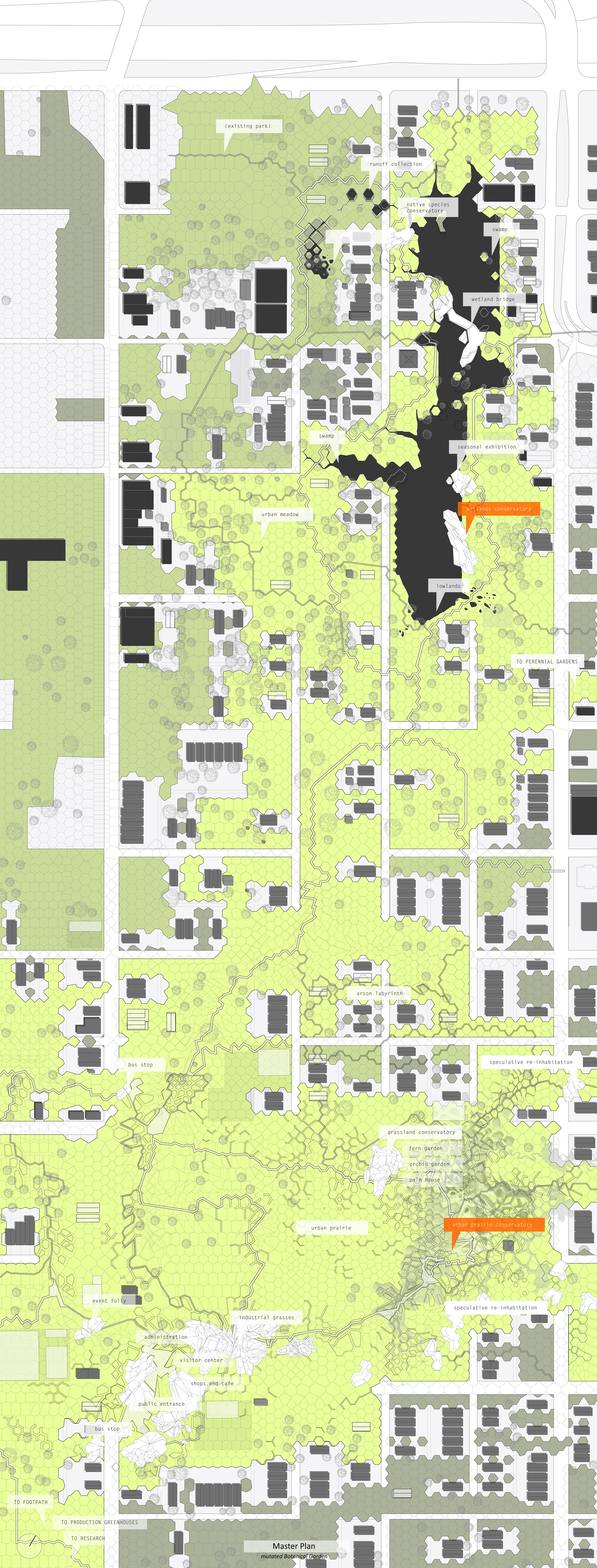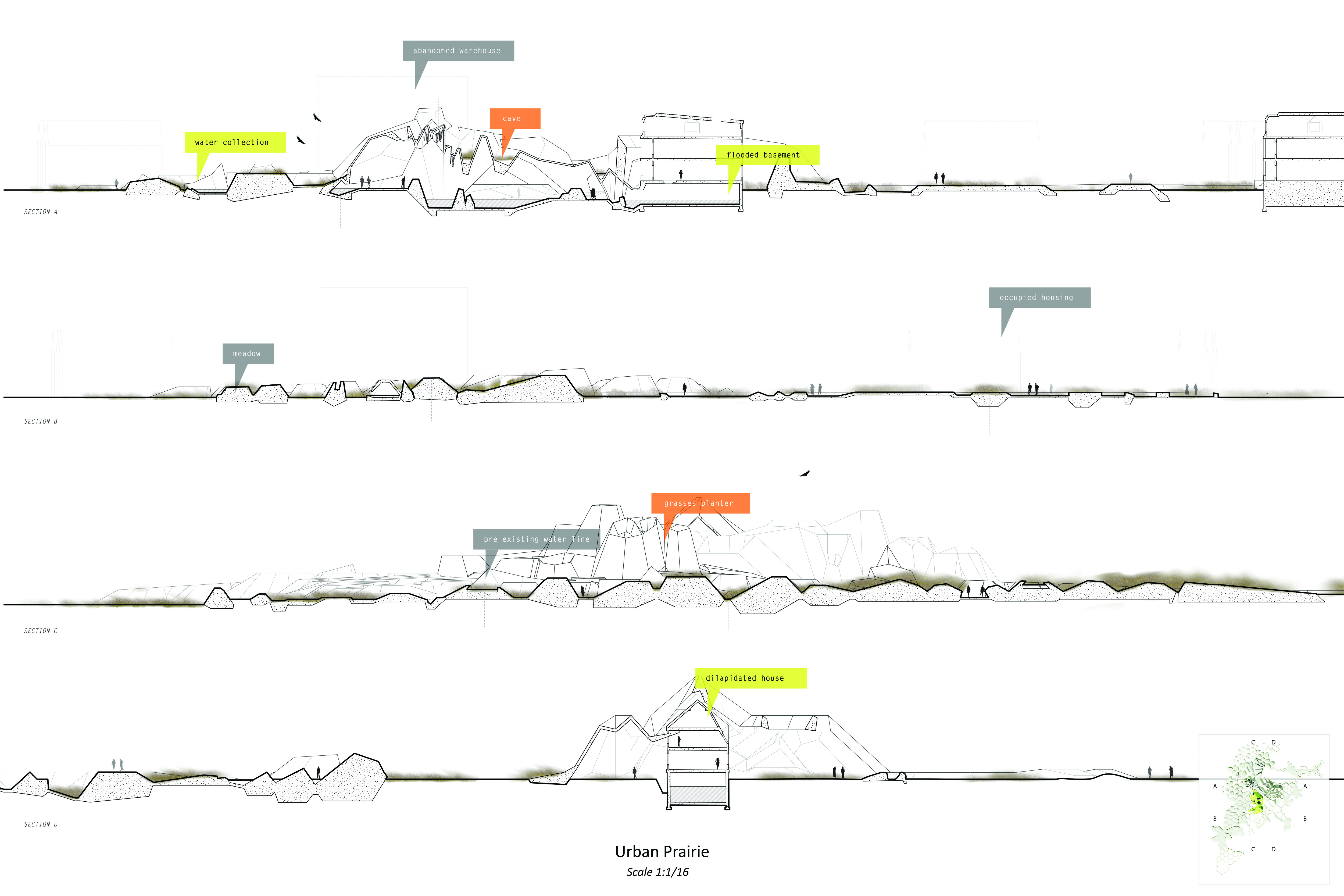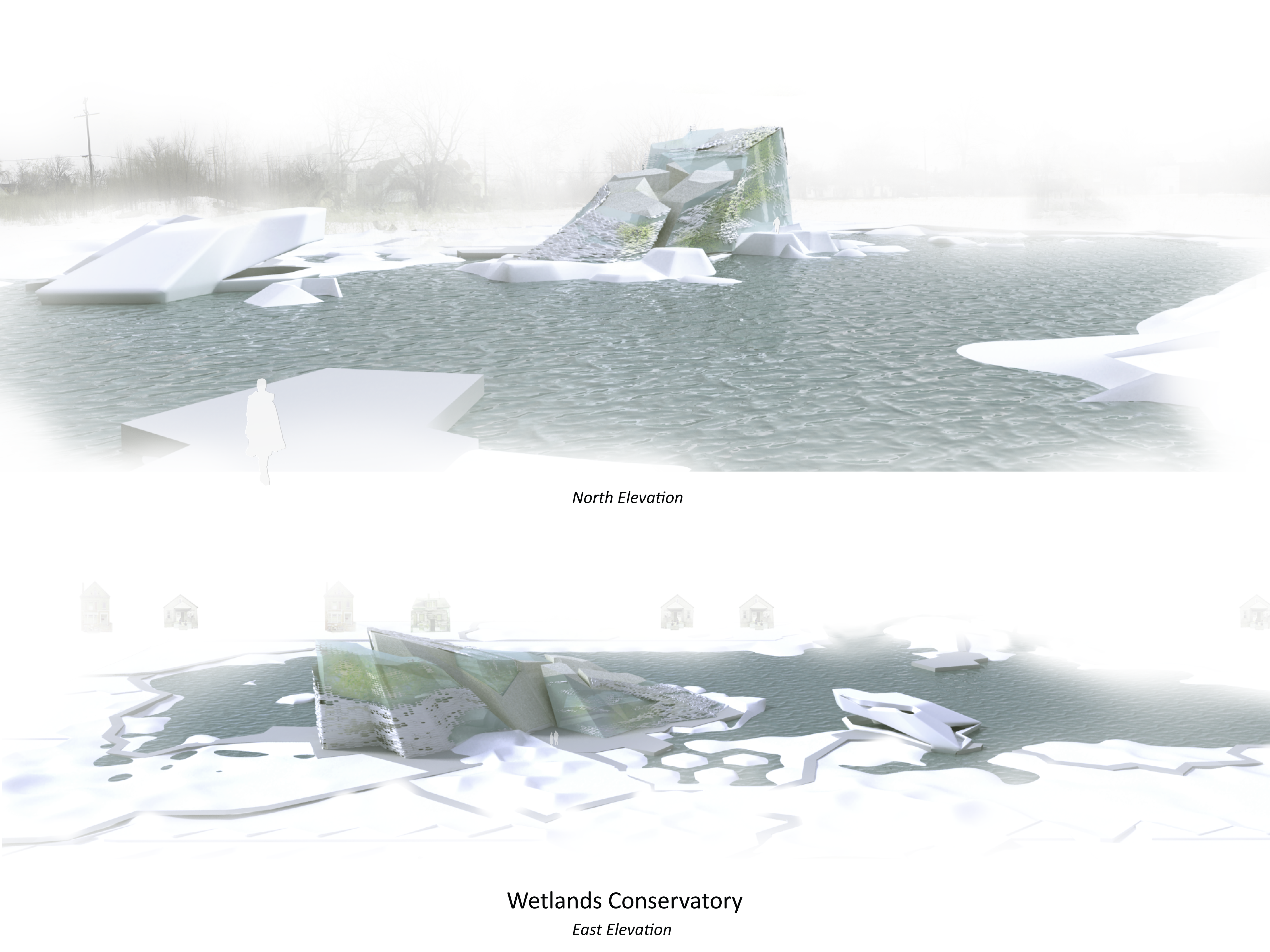The City and its Double
This proposal envisions Detroit as an opportunity to revitalize nature through the production of synthetic environments, creating a new form of micro-urbanism. The urban plan design scheme looks to intensify local ecologies and biodiversity of post-industrial American cities.



While natural and artificial are historically viewed as dichotomous, a mutation of the botanical garden typology looks to synthesize the two.












The self-destruction of Detroit is symptom to the adverse secondary effects of Fordism, common for many post-industrial American cities. Given the scope of its shrinkage, bankruptcy and decay, the exoskeleton of Detroit’s auto-industry permeates through the city. Much of the city’s land is now deemed valueless while architectural relics have been left abandoned, facing urban blight, metal scrapping, and eventual erasure.
Mapping abandoned lots in Detroit reveal a series of “hotspots” in which abandonment is at its highest. These neighborhoods are isolated by urban envelope- typically the result of a stark shift in zoning from large industrial zoning to residential. The project is interior to this envelope, and proposes the interrogation of interstitial space between the idealized lot boundary, and the actual boundaries on ground.
Connections via local lot adjacencies reterritorialize the urban prairie beyond the lot scale, using existing water infrastructure as a substrate to irrigate and enrich local ecologies. Nature reclaims spaces in expansion of sprawling urban prairies, ground shift in an originally marshy area, emergence of vegetation in situational or architectural conditions, and the envelopment of architecture entirely.
The Wetlands Conservatory exemplifies a hybrid of environments within an architectural relic, while maintaining difference in climate between the interior and exterior.
The direct reciprocity between city and landscape is a demonstration of the city’s pressure onto the landscape, and vice-versa - the tension created by the landscape onto the resilient citizens reluctant to leave the frontier of Detroit’s urban jungle.
-
Pratt Institute School of Architecture Undergraduate Thesis
In collaboration with with Gillian Shaffer
Advisors Evan Tribus and Dragana Zoric
Pratt Institute School of Architecture Thesis Prize, Runner Up